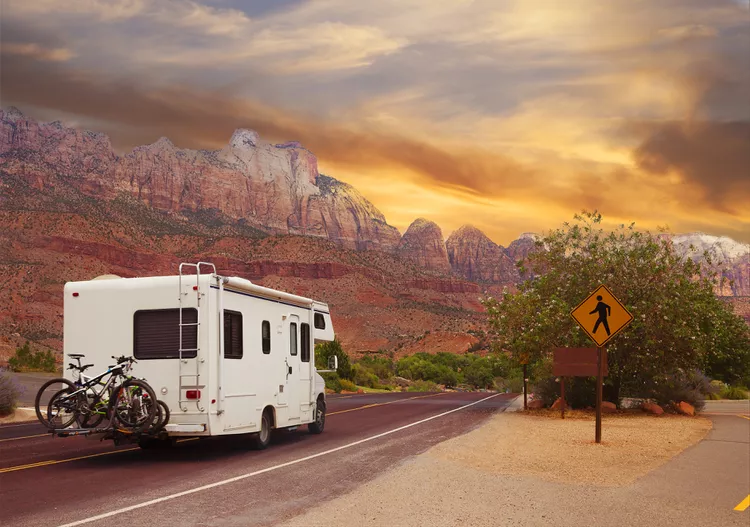Summary of RVing Tips
RVing is becoming one of the most popular ways to travel. However, a successful and safe RV trip requires preparation and planning to ensure a positive experience. Whether you are new to RVing or a seasoned traveler, these tips can help guarantee a smooth journey.
1. Learn How to Drive the RV You Plan to Use
If you are vacationing in an RV for the first time, it is essential to practice driving beforehand. If you don’t own your RV, consider renting one for a day. Experiment with different types of RVs to understand how they compare.
Driving a motorhome or towing an RV is significantly different from operating a standard car, SUV, or pickup truck. Keeping the RV centered in the lane, managing acceleration and braking, using mirrors to observe surroundings, and maneuvering through tight spots require practice. Furthermore, make sure to obtain plenty of practice backing your RV into campsites.
2. RV Insurance and Road Service
It is vital to ensure your insurance covers all aspects of your RV trip. Additionally, researching road services that specialize in RVs is crucial because not all roadside assistance companies provide trailer towing services. You certainly don’t want to leave all your possessions behind on the roadside.
- Does your auto insurance cover your trailer?
- Does your motorhome policy cover your towed vehicle?
- Do you require separate RV insurance or road service coverage?
- Will your insurance cover towing your motorhome, truck, AND trailer?
- How far will they tow you?
A 25-mile tow in New England might get you to safety, but in a Western state, it may only provide a change of scenery.
3. Reservations
Confirm your reservations a couple of hours prior to your arrival. You could face difficulties if you arrive after the office closes unless the campground offers 24-hour check-in.
Maintain a list of nearby campgrounds. If your reservations become lost or unavailable, having alternatives readily available can save a frustrating situation.
4. Check Road Conditions, Construction, and Closures
Truck drivers often say there are only two seasons: winter and construction. Thus, if you’re traveling in an RV, it’s likely you will encounter construction delays.
To save time and frustration, check resources that report on road conditions, closures, and construction delays. The US DOT Federal Highway Administration website provides a comprehensive map of road conditions by state.
5. Weather
While we cannot control the weather, being aware of forecasts can help avoid potential issues. Conditions like rain, snow, ice, and strong winds can adversely affect your trip. Below are some useful weather resources:
For the latest weather updates, visit truck stops and engage with seasoned truckers who can provide valuable information about the weather ahead.
6. Checklists
Experienced RVers often utilize checklists to ensure thorough inspections of their RVs, including the hitch and tow vehicle. A comprehensive checklist can cover various areas, such as tires and tanks, but many items require only a few seconds to check.
7. Electrical Load
Connecting electronics and appliances to your RV is straightforward, yet RVs are generally not designed to power many devices simultaneously. Most RVs come equipped for 30 or 50 amps.
For instance, if a toaster draws 14 amps and an egg cooker takes 5 amps, you cannot operate a 15-amp air conditioner while cooking in a 30-amp RV.
The formula to convert watts to amps is as follows: Watts ÷ Volts = Amps.
8. Weight
Proper weight distribution is vital when driving large RVs. Decide how much water and fuel to carry while adhering to the legal weight limits for your specific vehicle. Weigh your RV at commercial truck stops, weigh stations, or local co-ops.
If you plan to dry camp, fill your fresh water tank close to your destination for safer driving.
9. Wildlife
While encountering wildlife is often a highlight of RVing, keep in mind that these animals are “wild.” They may perceive humans as threats or sources of food. To prevent dangerous encounters, refrain from leaving food or trash unsecured.
Be cautious of various wildlife, including wasps, snakes, and even scorpions. Understanding park rules and warnings is essential. If unfamiliar with local fauna, spending time researching can be invaluable.
10. Wi-Fi and Mobile Internet
Reliable cell phone and internet access enhances your journey. Use free Wi-Fi available at rest stops and truck stops for connectivity. Many cities also provide at least one Wi-Fi hotspot. Upgrading to 4G Mi-Fi can significantly benefit your travel experience.





